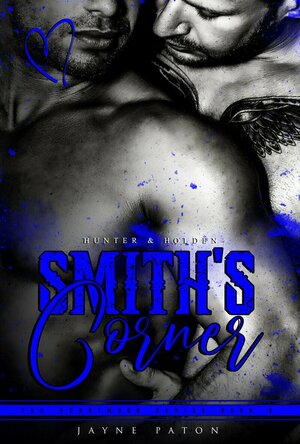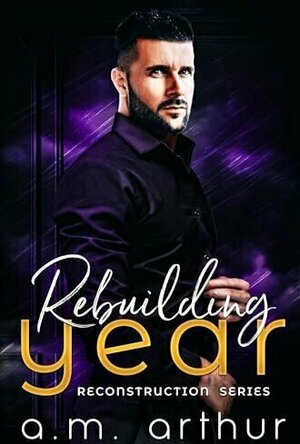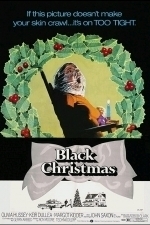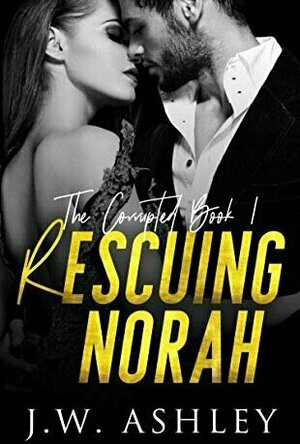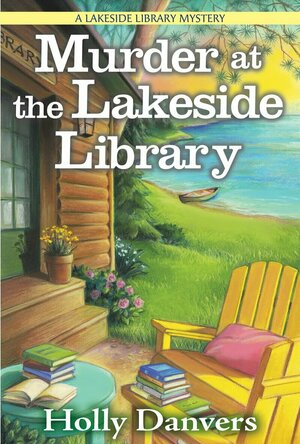Debbiereadsbook (1669 KP) rated Smith's Corner: Hunter and Holden (The Heartwood Series #6) in Books
May 13, 2022
Book 6 in the Heartwood series, and Lord has it been a wait for these two!
Hunter is best friends to Faith (book 4, Faith and Fox) but he's been a constant in this group since the beginning. As has Holden. Hunter knows Holden is straight, but his heart wants Holden and his heart will wait Holden out. Because Holden starts to feel something for the annoying bigger man who laid claim to him, even if he doesn't want to. And then all of a sudden, Holden questions everything he ever knew about himself.
Long time coming, but these boys do not disappoint, no ma'am they do not!
We knew Hunter had a thing for Holden, waaaaaay back in book one, and there is some overlap here with the later books. So I'd suggest you read all the other books before this one, to get the full picture of these two and how everyone else can see what's going on, even if Holden can't quite get it. They are, however M/F books, and might not be your thing, but they are so good! Most of the other pairings are crash condensed in this one, though.
There is anger here, with Holden fighting how he feels, how Hunter makes him feels. The thing is though, Holden does not ever say NO to Hunter. He pushes him away, sure, and he fights himself so freaking hard, but not once, does he utter the words NO to Hunter.
There is so much love too. Hunter does love Holden, even if Holden rejects him at first and Hunter cannot be with anyone else. Coco, Holden's daughter, can see how Hunter makes Holden feel, once they actually decide to do this thing between them, and she is a real delight here, loving that Hunter knows he can't just take Holden, he gotta take Coco too.
There is smexy times: so much with the smexy times, even if we do have to wait for the main event! But I loved being made to wait, I really did, and the epilogue? Oh! I loved the epilogue, I really did. It shows just how much Hunter loved Holden, and how he would wait for Holden to be ready to fully consummate their relationship.
There is pain here, too. Mostly on Hunter's part. A part he hides from a lot of people, but Holden sees it in Hunter, when he least expects to, and Holden does not do tears!
I think what I especially liked here, is that all the angst comes BEFORE they get together, you know? Once they decide to be a couple, they are all in and I loved that.
Loved watching the other pairings from both Holden and Hunter's point of view.
Who is next? No idea since all the brothers are now spoken for. Dakota (from the clothes store) needs a story, and Monty (the chef in the bar) oh I wanna know why Monty is so angry with the world (for most of the time, but he does come good here for Holden!) But I don't really care who comes next, I will read it!
5 full and shiny stars! I honestly think the best was saved for last!
** same worded review will appear elsewhere **
* A copy of this book was provided to me with no requirements for a review. I voluntarily read this book, and the comments here are my honest opinion. *
Debbiereadsbook (1669 KP) rated Rebuilding Year (Reconstruction #2) in Books
Jun 9, 2024
This is book 2 in the Reconstruction series, and while not strictly necessary, I would personally recommend you read book 1, Leap Year, before this. It will give you a better view of Brian's relationship with his brother, Patrick, and it will also give you Angelo and Brian's first meeting! I really enjoyed book one, and I really enjoyed this one too!
Brian has served his sentence, and is knuckling down to get back into society and do all he needs to do to come off probation. Angelo, faced with a life changing stipulation to his mentor's will, names Brian as his significant other. Funny, really, since their one and only meeting resulted in Brian punching Angelo in the face! But Angelo is injured, and Brian offers to look after him, and after that? It's only a matter of time before they give into temptation. There are secrets between though, and it won't take long for them to come to light. Can they really survive their revelation?
When I read Leap Year, I thought Angelo a fickle creature, but with a deep heart and a deep longing for something he wasn't sure what to do with. I was proven correct in that. Angelo wants what his best freind Russel has, and wants a HOME, not just somewhere he lays his head. He hasn't had a home in a long time, and seeing Russel happy with Patrick, and Frog, Patrick's son; Angelo is yearning for it. He just never expected that Brian, the man who punched him, would be that home. But I loved that, while he didn't immediately see that he was, he FELT at home in Brian's space, even if it was technically Angelo's house.
I loved how we got all of Brian's point of view for how Patrick came to be parent to Frog (again, loved Frog!) It's this issue that causes the only real tension between Angelo and Brian, and I loved that, once Angelo got over his shock, he comes back to talk to Brian and explain his hurt. He fully understands why it really isn't an issue for Brian anymore, once Brian explains: yes, Brian is Frog biological parent, but Patrick is his dad, in all the ways that matter and Brian knows he will always be Uncle Brian to Frog.
This book is on the steamier side and I loved that, while there was TALK about exhibionism, there wasn't any ACTUAL, expect that first time, when Angelo shows himself to Brian. I loved how Brian took control, with his words, but didn't venture into full Dom/sub mode. Angelo just needed to get out his head once in a while and Brian provided the words and actions to enable him to do so.
There were a couple of characters who pop up here and who I think might be next, maybe even together. I really can't wait to see if I'm right and I really hope I get to read it!
I wrote 4 stars at the top of the page, but now I'm typing up my review, I really can't find a single thing to knock that star off, so. . .
5 full and shiny stars!
*same worded review will appear elsewhere
Reading Progress
Matthew Krueger (10051 KP) rated Black Christmas (1974) in Movies
Dec 11, 2019
Inspired by the urban legend "The babysitter and the man upstairs" and a series of murders that took place in the Westmount section of Montreal, Quebec, Moore wrote the screenplay under the title Stop Me.
The Plot: As winter break begins, a group of sorority sisters, including Jess (Olivia Hussey) and the often inebriated Barb (Margot Kidder), begin to receive anonymous, lascivious phone calls. Initially, Barb eggs the caller on, but stops when he responds threateningly. Soon, Barb's friend Claire (Lynne Griffin) goes missing from the sorority house, and a local adolescent girl is murdered, leading the girls to suspect a serial killer is on the loose. But no one realizes just how near the culprit is.
Margot Kidder remembered shooting the film as being "fun. I really bonded with Andrea Martin, filming in Toronto and Ontario. Olivia Hussey was a bit of an odd one. She was obsessed with the idea of falling in love with Paul McCartney through her psychic. We were a little hard on her for things like that.
Black Christmas eventually gained a cult following and is notable for being one of the earliest slasher films. It went on to inspire other slasher films, the biggest one of all being John Carpenter's Halloween (which was apparently inspired by Clark suggesting what a Black Christmas sequel would be like).
Black Christmas has been included multiple lists in various media outlets as one of the greatest horror films ever made. The film ranked No. 87 on Bravo's The 100 Scariest Movie Moments.
A overall classic slasher horror movie based around a hoilday.
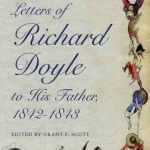
The Illustrated Letters of Richard Doyle to His Father, 1842-1843
Richard Doyle and Grant F. Scott
Book
"Scott's collection of illustrated letters from the hand of Richard Doyle, the fascinating but...
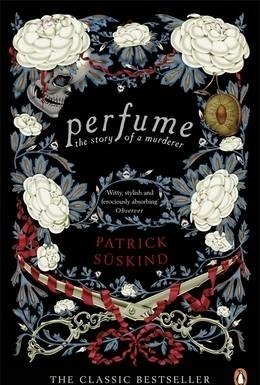
Perfume: The Story of a Murderer
Book
Patrick Suskind's Perfume is a classic novel of death and sensuality in Paris 'In eighteenth-century...
Lyndsey Gollogly (2893 KP) rated Rescuing Norah (Corrupted #1) in Books
Jul 1, 2020
Kindle
Rescuing Norah ( Corrupted book 1)
By J.W. Ashley
Sometimes the people we think we know, turn out to be someone else entirely.For Norah, running into a handsome young benefactor had never been in the cards. After being raised in shelters, she never expected to meet her own prince charming. So when Clayton Matthews turned his attention on her, she never looked back.But as the years pass, Norah's seemingly perfect life begins to unravel, revealing a much more sinister side to the man she's promised to marry.After losing his job on a technicality, Harley is determined to redeem himself in the eyes of the Seattle PD.Taking down one of Seattle's biggest crime bosses would be a damn good way to start, but as a Mercenary working for an off-the-books firm he's got his work cut out for him.On the night he's set to present his evidence, everything changes, and he finds himself on the run with none other than his target's beautiful fiancee.And as the game of cat and mouse turns deadly, Harley finds himself torn between duty and the intense attraction he feels for a woman he should hate.Rescuing Norah is the first in a series of intertwined suspense novels where the threat gets bigger, the sparks burn hotter, and the only thing standing in the way of victory is the bulls-eye painted on their backs.
This was a bit of a surprise for as I didn’t expect it to be as good as it was! Full of action a little romance and a very solid storyline! It definitely had you rooting for the good guys and booing the baddies. Loved the little twist with Norah and Gerry very sweet!
Shelle Perry (66 KP) rated Murder at the Lakeside Library: A Lakeside Library Mystery in Books
Aug 9, 2021
Rain is dealing with the death of her husband and an estrangement from her parents. She is just hoping to spend a quiet summer recharging, but best laid plans and all. First Rain is blindsided by the opening of the library, luckily she has friends Julia and Marge, to help out. Just as they get the project going, they stumble upon the dead body of a man who is reputed to be a close friend of her mother’s. Next to his body is a copy of Rain’s grandfather’s book, which should not be outside of the library under any circumstances. The mystery unfolds encompassing details from Rain’s family. Julia and Rain pick up their friendship where it left off all those summers ago growing up on the lake. Together they are impulsive and irrepressible and actually kind of fun. Other great characters flesh out Rain’s inner circle including a charismatic police officer that is prime material for romance at some point down the road when Rain has gotten things more together.
It is a terrific beginning to a new series I a looking forward to keeping up with
⭐⭐⭐⭐
Rating: 4 out of 5.
I received an advance review copy for free through Great Escapes Virtual Book Tours, and I am leaving this review voluntarily
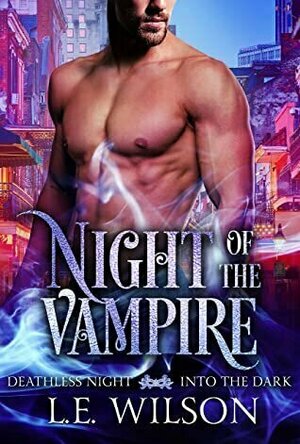
Night of the Vampire (Deathless Night - Into the Dark #1)
Book
Killian walked into my new voodoo shop late one night with an urgent request - he needed me to heal...
Paranormal Romance Vampires Witches
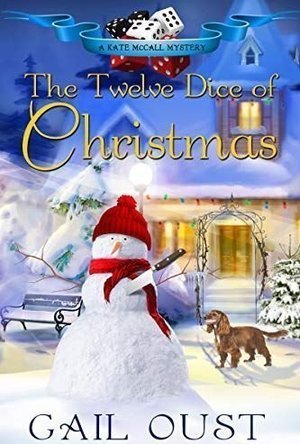
The Twelve Dice of Christmas
Book
Welcome to Serenity Cove, a peaceful Southern community where the residents like to play dice, play...
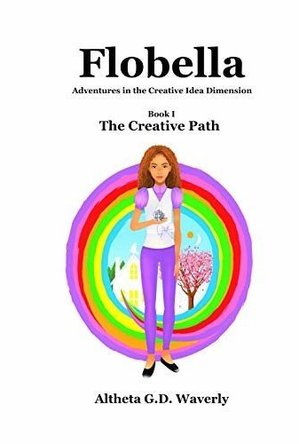
Flobella Adventures in the Creative Idea Dimension: Book 1 The Creative Path
Book
The Creative Path - Imagine the possibilities... Flobella is a creatress but she doesn't know it....
MG Middle Grade Fantasy fiction children's children
